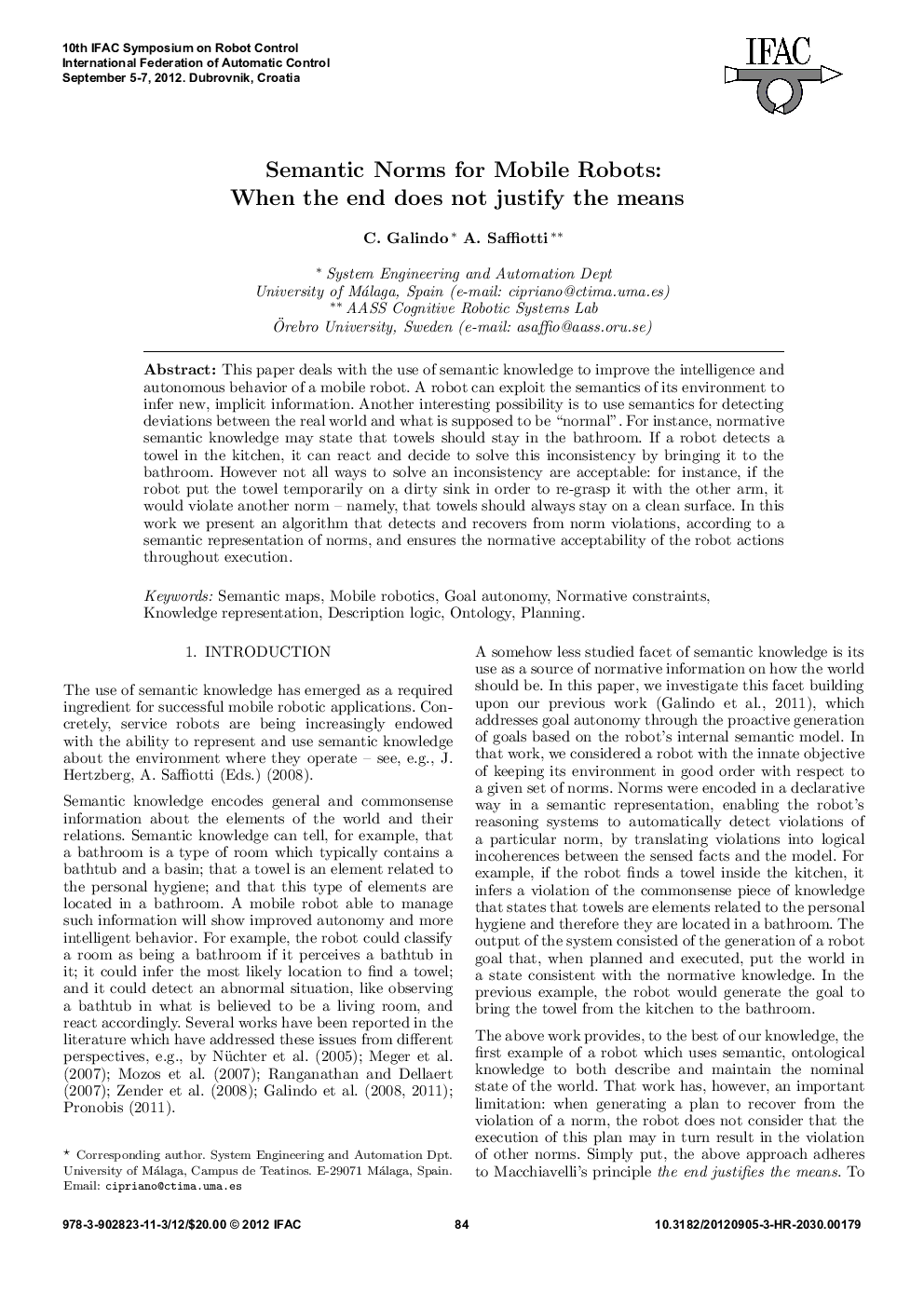| Article ID | Journal | Published Year | Pages | File Type |
|---|---|---|---|---|
| 717405 | IFAC Proceedings Volumes | 2012 | 6 Pages |
This paper deals with the use of semantic knowledge to improve the intelligence and autonomous behavior of a mobile robot. A robot can exploit the semantics of its environment to infer new, implicit information. Another interesting possibility is to use semantics for detecting deviations between the real world and what is supposed to be “normal”. For instance, normative semantic knowledge may state that towels should stay in the bathroom. If a robot detects a towel in the kitchen, it can react and decide to solve this inconsistency by bringing it to the bathroom. However not all ways to solve an inconsistency are acceptable: for instance, if the robot put the towel temporarily on a dirty sink in order to re-grasp it with the other arm, it would violate another norm – namely, that towels should always stay on a clean surface. In this work we present an algorithm that detects and recovers from norm violations, according to a semantic representation of norms, and ensures the normative acceptability of the robot actions throughout execution.
